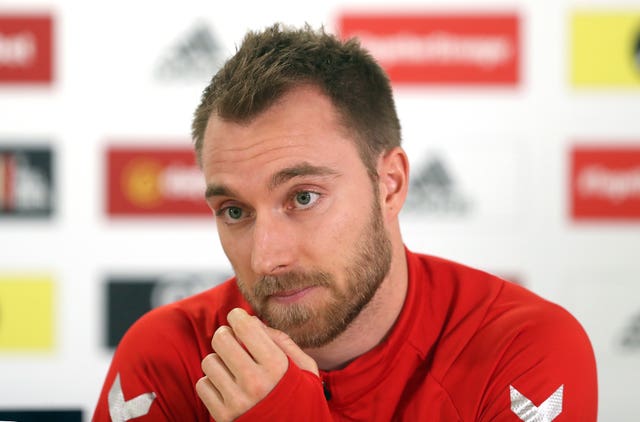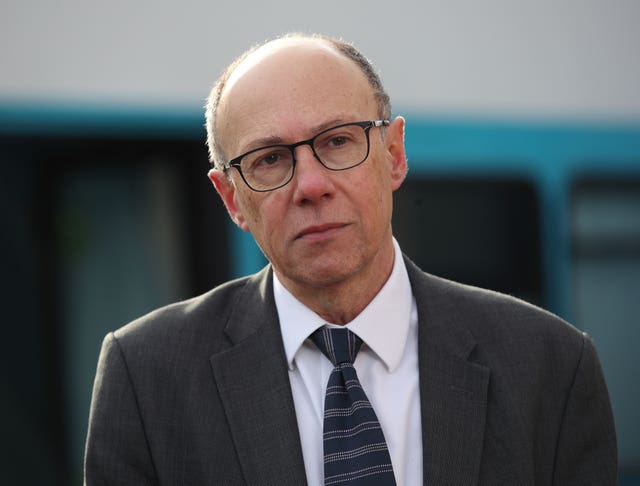CPR lessons available via NHS following Christian Eriksen’s Euros collapse
St John Ambulance said the Danish footballer’s collapse sparked a 1,000% increase in calls asking for resuscitation training.

An army of NHS volunteers will be teaching CPR after medics used the procedure to save footballer Christian Eriksen’s life during a Euro 2020 match last weekend.
It comes after St John Ambulance said the Danish player’s collapse sparked a 1,000% increase in calls asking for cardiopulmonary resuscitation (CPR) training, and searches for defibrillator guides were up 1,900%.
England’s national medical director, Professor Stephen Powis, who has launched the project in partnership with the ambulance service, said training will also include how to recognise a cardiac arrest and use a defibrillator.
Marking the launch on Thursday, Prof Powis will tell the NHS Confederation Conference it is “clear” that Eriksen’s life was saved by the “urgent medical attention on the pitch”, drawing parallels with former Arsenal star Fabrice Muamba, who was given similar treatment during an FA Cup match in London in 2012.
According to the NHS, only one in three people in England currently gives CPR when responding to someone going into cardiac arrest.
Prof Powis said with proper training the number of lives saved could double.
“Since Eriksen’s collapse at the weekend, we have also seen kind-hearted Brits sharing information online on how to do CPR and save a life,” he said.
“Today, I’m calling on them to go one step further and train to teach CPR as we know this will mean more lives like Christian Eriksen’s will be saved.”

“We saw a massive rush in willing volunteers to help life-saving activity during the pandemic and we hope that even more people will be inspired to join our Eriksen’s Army, learn CPR and become life-savers.”
Prof Powis told ITV’s Good Morning Britain that he received refresher training from London Ambulance Service “a year or two ago”, saying: “You come out of it incredibly confident that this is something you will be able to do.”
St John Ambulance head of community response Adam Williams said responses to a campaign by the charity showed that people are “hungry for first aid training”.

St John Ambulance chief operating officer Richard Lee told Sky News that the survival rate for people suffering a cardiac arrest decreases by 10% each minute they are waiting for a defibrillator shock.
He added that, due to the pandemic, medics are not teaching people to give mouth-to-mouth resuscitation and listen for their breathing, which is also part of the procedure.
Ambulance services will develop a national network of defibrillators and community advocates to champion the importance of first aid, which aims to save up to 4,000 lives each year by 2028.
St John Ambulance recently trained 27,000 vaccination volunteers in these life-saving skills and will seek to train an additional 60,000 people as part of the new programme.
The project will involve at least 30 volunteers from each of England’s 10 ambulance trusts, and is being launched alongside an education programme including for schoolchildren.
St John Ambulance is also offering free CPR and defibrillator courses online via the charity’s website.





